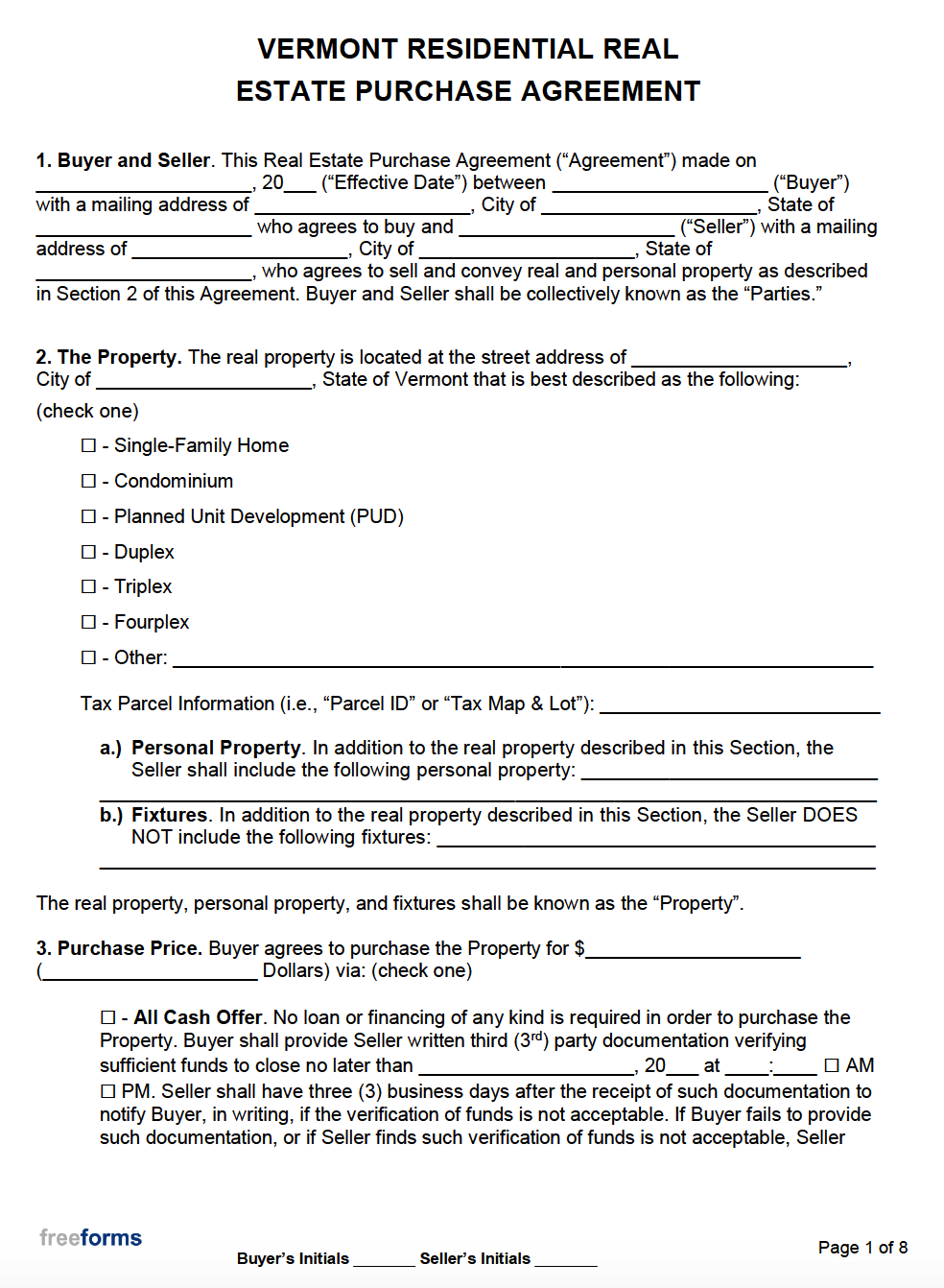The Vermont purchase agreement establishes a real estate transaction’s terms of sale. A loan from a financial institution is typically needed to secure the purchase of residential properties; therefore, the agreement should generally be presented after the buyer has met pre-qualification requirements.
All parties should thoroughly inspect each of the provisions before endorsing the document.
Buyer Beware (§ 20-4-1800:4.5)- The state of Vermont does not legally compel a seller to inform a buyer of defects associated with a property. It is in the best interest of both parties to disclose problems to avoid future issues that could arise, especially if the sale is conditional to a standard inspection. For transactions involving a real estate professional assisting with the purchase, all known issues must be disclosed.
Required Disclosures
Lead-Based Paint Disclosure (42 U.S. Code § 4852d) – If the home being sold was constructed prior to 1979, an occupying individual could be vulnerable to coming in contact with lead-composed paint. Federal regulation specifies that the risks associated with the hazardous substance must be reported within the purchase agreement.
Seller Agent Property Disclosure (§ 20-4-1800:4.5) – Should the seller of the home commission a broker to sell the property, the broker must be held to the additional duty of disclosing any material defect associated with the property. This can refer to issues pertaining to the structure itself, heating, water or electrical-based systems, the title, or environmental concerns.
Realtor Versions
Vermont Realtors Purchase and Sale Contract – PDF



0 comments
Comments are closed.